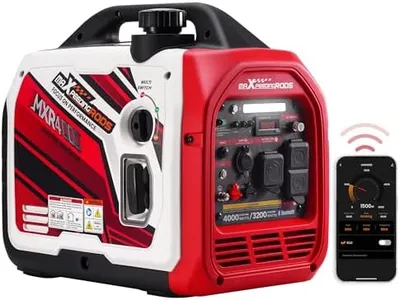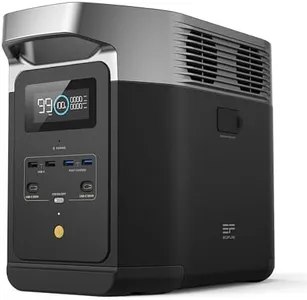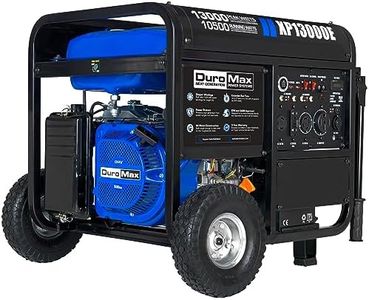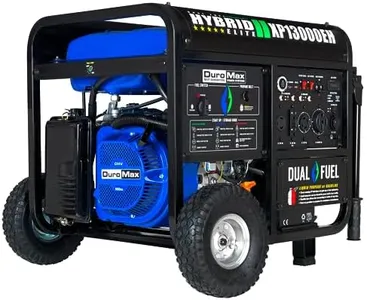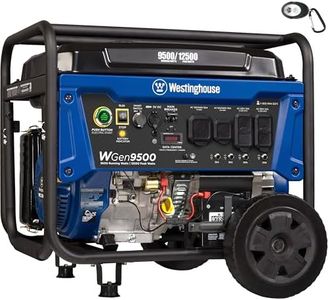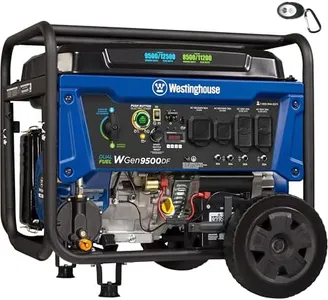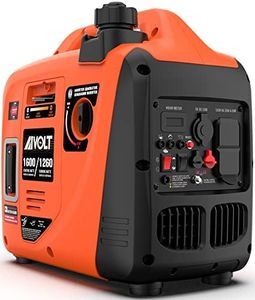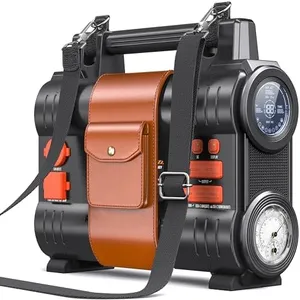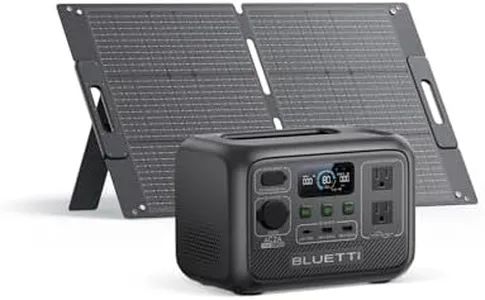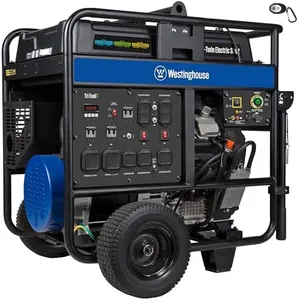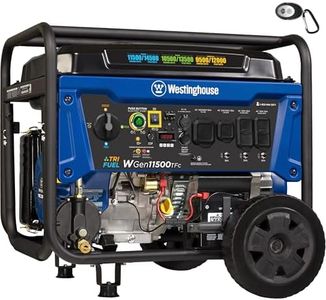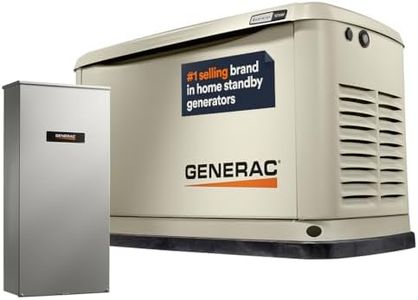10 Best Home Backup Generators 2025 in the United States
Our technology thoroughly searches through the online shopping world, reviewing hundreds of sites. We then process and analyze this information, updating in real-time to bring you the latest top-rated products. This way, you always get the best and most current options available.

Our Top Picks
Winner
EF ECOFLOW Portable Power Station DELTA 2, 1024Wh LiFePO4 (LFP) Battery, 1800W AC/100W USB-C Output, Solar Generator(Solar Panel Optional) for Home Backup Power, Camping & RVs
Most important from
4059 reviews
The EF ECOFLOW Portable Power Station DELTA 2 boasts an impressive power output of 1800 watts, with a starting wattage of 2700 watts, making it capable of powering 90% of home appliances. It's exceptionally flexible with its expandable capacity from 1kWh to 3kWh, ideal for various uses such as home backup power, camping, or RV trips. The unit uses a lithium iron phosphate (LiFePO4) battery, which is known for its safety and long lifespan of over 3000 charge cycles, ensuring durability and reliability over several years.
One of its standout features is the rapid charging capability, allowing it to charge from 0-80% in 50 minutes and 0-100% in 80 minutes with an AC input, which is highly convenient for emergency power needs. The DELTA 2 is also designed to be environmentally friendly, with the option to incorporate solar panels for clean, green charging. Weighing just 27 pounds, it is portable, although not the lightest option on the market. It includes a variety of charging cables and a comprehensive user manual, making setup straightforward.
One limitation is the absence of an automatic transfer switch (ATS), meaning it won't switch on automatically during a power outage, which could be a dealbreaker for some users looking for seamless power backup solutions. The EF ECOFLOW DELTA 2 is a robust and versatile power station suitable for those who need a reliable and portable power source for various applications, particularly if solar compatibility and rapid charging are priorities.
Most important from
4059 reviews
DuroMax XP13000E 13,000-Watt Gas Powered Portable Generator - Electric Start, Whole Home Backup Power, Transfer Switch Ready, RV & Emergency Ready
Most important from
559 reviews
The DuroMax XP13000E is a gas-powered portable generator designed to deliver strong backup power for homes and commercial use. With a peak output of 13,000 watts and a running wattage of 10,500 watts, it can handle heavy loads including multiple household appliances and high-power tools. It operates on gasoline, which is widely available, though it requires fuel storage and regular refills.
The generator features an electric start for easy use and comes transfer switch ready, making it suitable for seamless home backup during power outages. It has a variety of outlets, including heavy-duty 240V options, adding flexibility for different power needs. Portability is supported by included wheels and a foldable handle, but at 236 pounds, it is relatively heavy and might need two people or a dolly to move comfortably. Important safety features like low oil shutdown and a CO sensor enhance its reliability.
This generator is suited for homeowners or small businesses needing a robust, reliable power source capable of handling whole-home backup and heavy-duty tools, provided they are comfortable managing its size and fuel use.
Most important from
559 reviews
DuroMax XP13000EH 13,000-Watt Dual Fuel Portable Generator - Gas & Propane, Electric Start, Whole Home Backup Power, Transfer Switch Ready, RV & Emergency Ready
Most important from
3701 reviews
The DuroMax XP13000EH is a strong contender in the home backup generator category, especially for those who want reliability during power outages. With a power output of up to 13,000 watts, it provides ample energy to keep your household running smoothly. This dual fuel generator can operate on both gasoline and propane, making it versatile and easy to refuel depending on your situation. One of its notable features is its electric start and user-friendly front interface, which allows you to switch fuel types effortlessly.
In terms of portability, the XP13000EH includes no-flat tires and a foldable handle, making it easier to move around, whether it’s in your backyard or to an RV site. Its tough, all-metal construction adds to its durability, designed to withstand harsh weather and heavy use. The copper windings ensure better heat conduction and longevity.
There are some considerations to keep in mind. Weighing 234 pounds, it may not be the most convenient option for everyone when it comes to mobility, especially for those who may need to lift it frequently. While it offers an automatic transfer switch-ready outlet, users may need to purchase an ATS separately for seamless transition during power outages. The noise level can also be a concern; while not specified, portable generators generally produce a significant amount of sound, which might be disruptive in a residential area. Lastly, its relatively large tank volume means good run time, but remember to keep an eye on fuel levels.
Most important from
3701 reviews
Buying Guide for the Best Home Backup Generators
Choosing the right home backup generator is crucial to ensure that your home remains powered during outages. A backup generator can provide peace of mind and keep essential appliances and systems running smoothly. To make an informed decision, you need to understand the key specifications and how they align with your needs. Here are the main factors to consider when selecting a home backup generator.FAQ
Most Popular Categories Right Now
